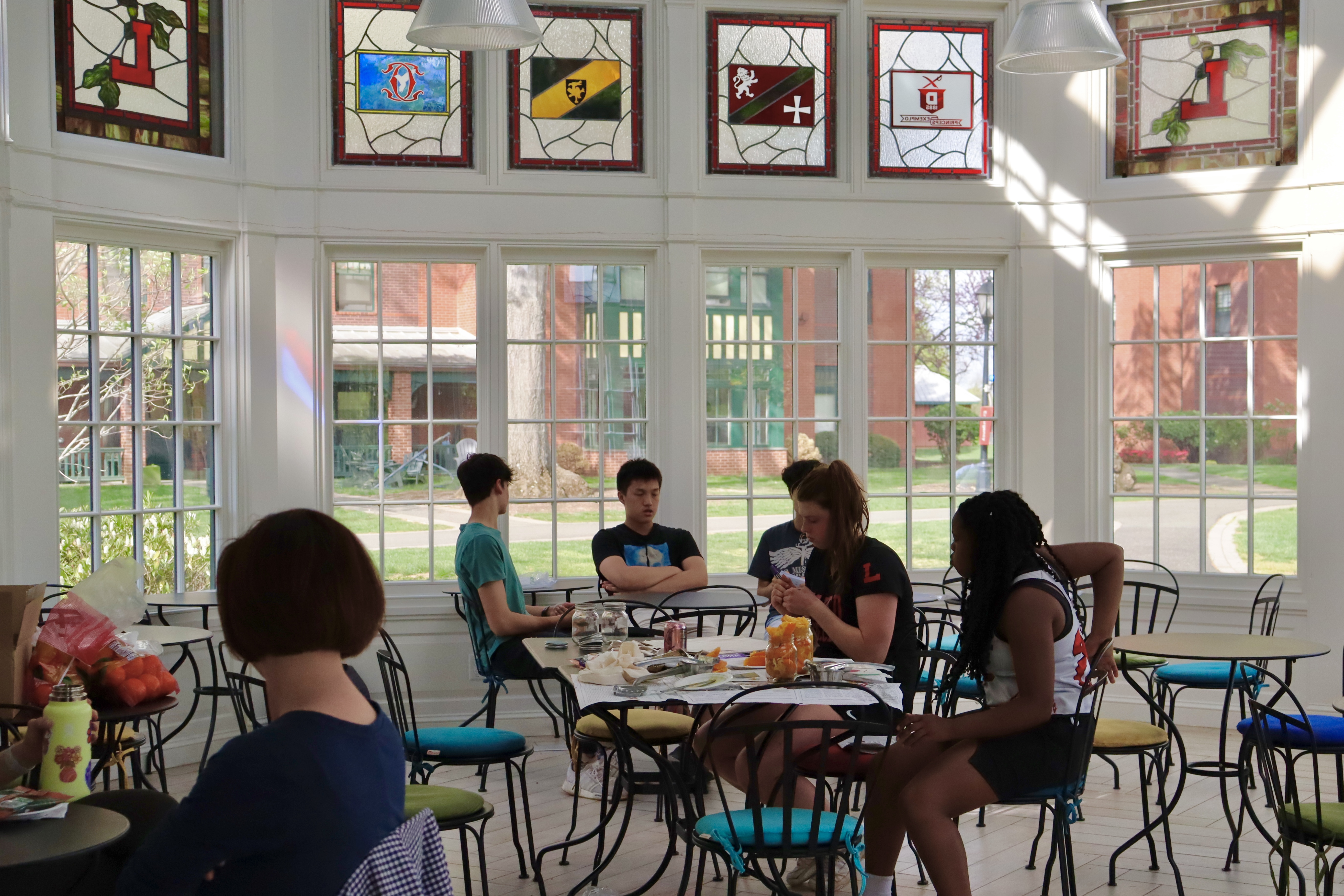Thursday, April 24
Flying Kites and Building Terrarium: Earth Day Fair
Sydney Wang '25 (Copy Editor, 144th Board) in News | April 28, 2023

Lawrenceville’s annual Earth Day Fair was hosted on Saturday, April 22, inside the Bathhouse Cafe. The event, organized by the Sustainability Council, aimed to help Lawrenceville students and faculty explore different environmental topics with booths offering a variety of activities, including kite-making, building succulent terrariums, and learning about the science behind solar panels.
According to Sustainability Council Board Member Antonia Comaniciu ’25, the Events and Community Service subcommittees began organizing the Earth Day Fair a few weeks ago. “Fun and engaging” ideas for the fair were brainstormed before a form was sent out to the whole council, with anyone on the council having the chance to host a booth based on their interests. The main purpose behind the booths was “to get everyone involved and educated about sustainability,” explained Comaniciu. She, along with Alayna Ting ’24, Audrey Cheng ’25, and Sienna Mora ’25, was in charge of the Arts and Crafts station, where community members could paint and design tote bags. The tote bags serve as a reminder for Lawrentians to use reusable items over disposable ones when possible.
“I think my motivation [for helping run the Arts and Crafts booth] was just to give back to the community and teach people more about sustainability,” said Cheng. Aside from helping community members “blow off steam” through decorating tote bags, she also learned that sustainability is “easy to incorporate into [one’s] daily life.” The succulent terrarium stations, for instance, taught her how to “easily put an abundance of supplies into good use.” The fair helped her understand the importance of reducing waste and converting daily objects into sustainable products.
Kingsley Du ’26 shares a similar sentiment on the event. Though Du is not a frequent attendee of campus sustainability events, he decided to visit the Earth Day Fair because of his “love for plants and nature.” He described the fair as having “enlightened” him on sustainability-related topics, reminding him of the significance of living a sustainable lifestyle. In the future, he hopes to use less water and save more electricity to be “more [environmentally] conservative in [daily] practices.”
Comaniciu noted that the fair this year was “one of the most engaging and popular [sustainability-related] events” that she has attended in the past two years. “I think the more students are educated about sustainability and have fun during [these] events, the more they will take actions to reduce their carbon footprint,” she said. “Every student making a sustainable difference in their lifestyle will help lower our campus’ total carbon footprint.”
Related Articles
- Announcing: Valedictorian, Aurelian Speakers, and Faculty Speaker Sophie Liu ’27
- Welcoming Our New VPs for 2025-2026 Sophie Liu ’27
- Leo Min Takes the Win: The 2025-26 Student Body President Presents to You...ZUMBA Sophie Liu ’27
- Farewell to the V Formers of The Lawrence CXLIV Sophie Liu ’27
- Black History Month: Afrofest & Panels Angel Xin ’26 and Dorothy Lee ’26
Recent Articles
- Announcing: Valedictorian, Aurelian Speakers, and Faculty Speaker Sophie Liu ’27
- Senior Profile: Sophie Cheng ’25 Katherine Qiu ’27
- Debunking the Dining Hall Debate: Is Lawrenceville’s Dining Really That Bad? Isabelle Lee ’27
- Welcoming Our New VPs for 2025-2026 Sophie Liu ’27
- A Sweet Return: Melba Reopens with New Flavors and Community Spirit Ella Song ’27